Why Our Culture Needs Santa Claus (and the Easter Bunny)Christians didn't exactly invent Christmas, or that is, they didn't invent year-end feasts that were meant to coincide with the shortest day of the year. Rather, about three centuries after Jesus walked the earth, some church leaders decided that it was okay for Christians to have their own festivities around the winter solstice as long as they claimed to be celebrating the birthday of Jesus (which no one, technically, knows). (If you want to know more about the history of Christmas as a holiday, click here.)Fast-forward to the 1960s and 1970s when certain religious people started insisting that Christmas only "counted" if it was about Jesus. They managed to get the Christian abbreviation "Xmas" out of our vocabulary, and they started in on Santa Claus, whom they determined to be a detraction from Baby Jesus. Somehow they had failed to notice that the "Christmas" holiday being portrayed in the movies, on the television, and in the stores was not really the same Christmas holy day that they celebrated in their homes and churches. In spite of occasional religious trappings, it was an increasingly secular event that was becoming more about shopping than anything else. Some folks who thought they could keep Christ central to Christmas in an increasingly secular and multicultural society focused on Santa Claus as the reason that they were "losing the holiday" to those concerned more with parties and presents than with spiritual blessings. So Santa had to go. But was Santa really the "bad guy" here? While building and maintaining Christmas-themed web sites over the last several years, I've also spent time researching and musing over various holiday traditions. Occasionally, I've changed my mind about issues that I thought I had settled in my twenties. For example, the spiritual leaders I sat under in my twenties and thirties made certain I mistrusted the secular or pre-Christian icons that "intrude" on Christmas and Easter (Santa, Christmas Trees, Easter Bunnies, colored eggs, etc.). But now I'm glad they're there. Not only do they give people who wouldn't be celebrating the religious aspect of the holidays anyway a reasonably healthy outlet; they also help take the blame for overeating, conspicuous consumption, tooth decay, and other problems with the way our culture "celebrates" holidays today. But before I explain that last bit any further, we'll take a quick look at where "St. Nick" started out and where he stands in our culture today.
|

|

|
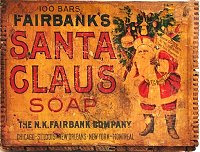 There was even a Santa Claus Soap brand, which was sold year-round.
There was even a Santa Claus Soap brand, which was sold year-round.
From there it was a small jump to the Madison Avenue Santa Claus of the early 1900s.
Since then, images of Santa have been used to sell not only toy trains and Coca Cola, but also cigarettes, booze, lingerie, and worse (I excluded some examples because this is a family web page). Is it really a bad thing that our current cultural perception of Santa Claus is divorced from the Christian origins of his namesake?

|

|

|

|

|

|
Similar "backstories" have come up since, in other contexts and media. As a Christian, I felt "ripped off" at first by this attempt to divorce Santa completely from his religious origins. But in retrospect, Santa's image has been used in recent years to encourage overspending and conspicuous consumption, and to sell some pretty objectionable stuff. So maybe taking him completely out of the "religious" column - at least in this country - is better for the minority who would still like to think of Christmas as a religious observance.
By the way, I don't mind the backstory rewrite in Tim Allen's 1994 The Santa Clause.
In that movie, Santa is a sort of magical franchise that gets passed on to the closest male adult when the old Santa dies. Compared to the "good-toymaker-made-immortal" version this one is at least clever.
 As one example, Martin Luther is given credit for asking Protestant parents to claim that the "Christ Child" ("Christkind" in German) brings the presents instead of St. Nicholas. Many folks give Luther credit for this notion of Jesus coming back as a child to do good works, work miracles, or bring goodies in what are essentially fairy tales that defy even Luther's theology. But Luther was only choosing one tradition over another.
As one example, Martin Luther is given credit for asking Protestant parents to claim that the "Christ Child" ("Christkind" in German) brings the presents instead of St. Nicholas. Many folks give Luther credit for this notion of Jesus coming back as a child to do good works, work miracles, or bring goodies in what are essentially fairy tales that defy even Luther's theology. But Luther was only choosing one tradition over another.
Remember what I said about the lives of the saints once being "fair game" for inventive fiction? During the middle ages, the "Christ Child" was also "fair game" as far as inventive fictions were concerned. Fantasy tales that included theophanies (miraculous and unexpected appearances) of the "Christ Child" abounded. For instance, the "Christ Child" appears as a magical child in St. Christopher's story, which predates Luther by centuries.
Now, I'm not bothered by random new story lines about Santa - by now he's an entirely fictitious figure. But as a Bible-believing Christian, I'm not all that thrilled by fantasy stories about "Baby Jesus" traveling beyond space and time. I would be far less thrilled, though, if "Baby Jesus" appeared in any of the magazine advertisements above. For all of his imagined faults, Santa has certainly "taken one for the team."
 Today in several European countries, Christmas cards show the "Christkindl" ("Small Christ Child") giving presents, often riding or leading a horse or donkey. Sometimes he accompanies that country's version of St. Nicholas and an angel. I've even seen him accompanied by St. Nicholas and a Zwart Piet. As weird as that combination may seem, imagine if our modern Santa myth didn't exist and images of the "Christ Child" were being used to hawk merchandise and worse.
Today in several European countries, Christmas cards show the "Christkindl" ("Small Christ Child") giving presents, often riding or leading a horse or donkey. Sometimes he accompanies that country's version of St. Nicholas and an angel. I've even seen him accompanied by St. Nicholas and a Zwart Piet. As weird as that combination may seem, imagine if our modern Santa myth didn't exist and images of the "Christ Child" were being used to hawk merchandise and worse.
Note: In many places, the Christkind or Christkindl ("Little Christ Child") figure is no longer seen as an appearance of the Christ Child as much as an angel that "represents" the Christ Child. Some versions even have wings.
 In addition, so many pageants and village parades over the years have cast young, longhaired (usually blonde) girls as the Christkindl, that in some festivals, such as Chicago's annual Christkindlmarket, the Christkindl is always female, and not always exactly a child.
In addition, so many pageants and village parades over the years have cast young, longhaired (usually blonde) girls as the Christkindl, that in some festivals, such as Chicago's annual Christkindlmarket, the Christkindl is always female, and not always exactly a child.
And if that diversion from what you might expect wasn't strange enough, the name Christkindl has crossed the Atlantic as "Kris Kringle," but it is used, not in relation to the "Christ Child," but as another name for you-know-who.
A few years ago, a Shrek Christmas special came out, and I watched it while I was working on something else, just to see if it was worth keeping on the DVR. The premise was that Shrek wanted a quiet Christmas Eve so he could read "The Christmas Story" to the kids.
Now I know what "The Christmas Story" is - so does everyone who's ever seen "A Charlie Brown Christmas." Charlie Brown is on the verge of losing it when Linus, dressed in his shepherd costume, quotes at length from the second chapter of Luke.
And there were in the same country shepherds abiding in the field, keeping watch over their flock by night.
And, lo, the angel of the Lord came upon them, and the glory of the Lord shone round about them: and they were sore afraid. And the angel said unto them,
Fear not: for, behold, I bring you good tidings of great joy, which shall be to all people.
For unto you is born this day in the city of David a Saviour, which is Christ the Lord.
And this shall be a sign unto you; Ye shall find the babe wrapped in swaddling clothes, lying in a manger.
And suddenly there was with the angel a multitude of the heavenly host praising God, and saying,
Glory to God in the highest, and on earth peace, good will toward men.
I couldn't help being a little apprehensive, when Shrek, in between jokes about flatulence, dirty diapers, and worse, kept talking about reading "The Christmas Story" to the kids. But when the big moment came, what he recited was a parody of "A Visit from St. Nicholas." It started out "T'was the night before Christmas/Not a swamp-rat did creep." The next line was a flatulence joke, and things went downhill from there, so that's all of the parody I will quote here.
How did I feel about Shrek's producers mixing up "A Visit from St. Nicholas" and THE Christmas Story? Fine. Once again, Santa takes one for the team. With apologies to the author of "A Visit from St. Nicholas," I'd much rather see Shrek belch his way through that text than through the second chapter of Luke. Yet if it wasn't for Santa, what would Shrek's writers have chosen to lampoon?
 Why Did I Mention the Easter Bunny?
Why Did I Mention the Easter Bunny?So let folks who don't really care about the Resurrection focus on the less "spiritual" icons and hide eggs and eat candy and focus on all of those other secular or semi-secular trappings. To them, that's what Easter is all about.
And you won't change their minds by pressuring businesses to replace chocolate bunnies with chocolate statues of Jesus or something. In fact, you'll make things worse.
Two times a year - Christmas, and Easter - America's secular and religious worlds align (collide might be a better term). Through much of my life, conservative Christians have been wringing their hands because non-Christians celebrate Christmas and Easter for the "wrong" reasons, or they do it the "wrong way." A few radio and television announcers who demonstrate lots of religiosity (and very little charity) insist that if we're serious about our faith, we'll take it upon ourselves to "straighten people out," especially harried store clerks and other folks who, inevitably, need compassion far more than they need confrontation.
Here's an idea: The next time you're tempted to tell somebody the one true "real" meaning of Christmas or Easter, try saying instead, "Do you know why Christmas (or Easter) has special meaning for me and my family?" You just might get a listen.
And when the rabbit or the big guy in the red and white suit seem to be getting all the attention, thank the Lord that they are - the real Jesus doesn't need that kind of attention.
God grant you and your loved ones grace and a spirit of generosity and service this Christmas season.
Paul D. Race, Family Christmas Online
If you have any corrections or comments you would like to make about this page, please contact me and I will be glad to hear from you. God bless - Paul
To return to the Christmas Musings page, click here.
To return to the Family Christmas OnlineTM Home Page, click here.

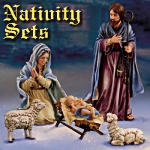


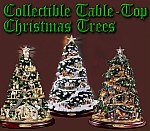
| 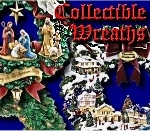
| 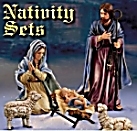
| 
| 
|
Note: Family Christmas OnlineTM is a trademark of Breakthrough Communications(tm) (www.btcomm.com).
All information, data, text, and illustrations on this web site are
Copyright (c) 2006, 2007, 2008, 2009, 2010, 2011, 2012, 2013 by Paul D. Race.
Reuse or republication without prior written permission is specifically
forbidden.
Family Christmas Online(tm) is a participant in the Amazon Services LLC Associates Program, an affiliate advertising program designed to provide a means for sites to earn advertising fees by advertising and linking to amazon.com.
For more information, please contact us
| Visit our affiliated sites: | ||||||
| - Christmas Memories and Collectibles - | ||||||
 |

|

|

|

|

|
|
| - Family Activities and Crafts - | ||||||
 |

|

|

|

|

|
|
| - Trains and Hobbies - | ||||||

|

|

|  |

|
 |
|
| - Music - | ||||||

|

|
 |

|

|
 |
|